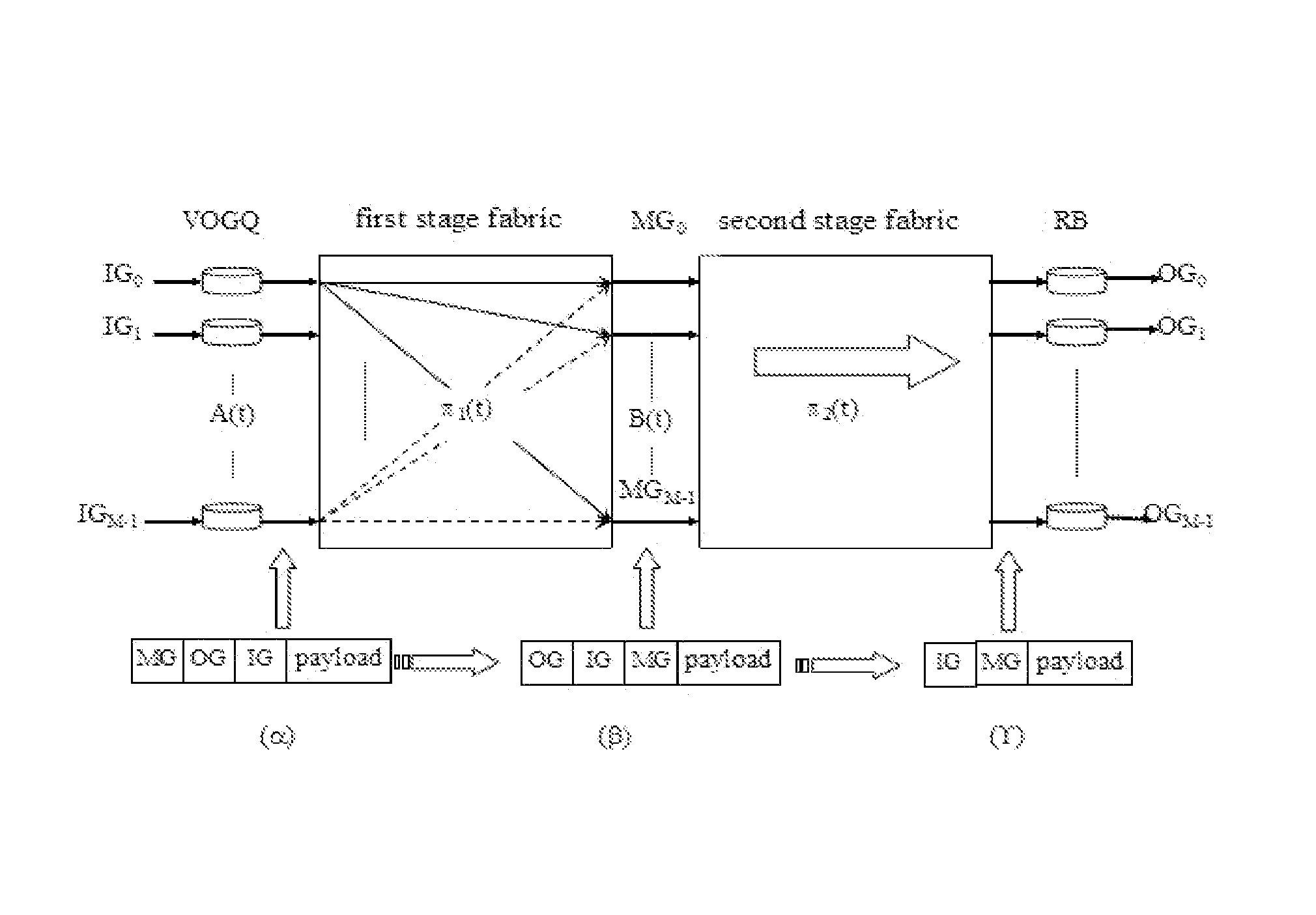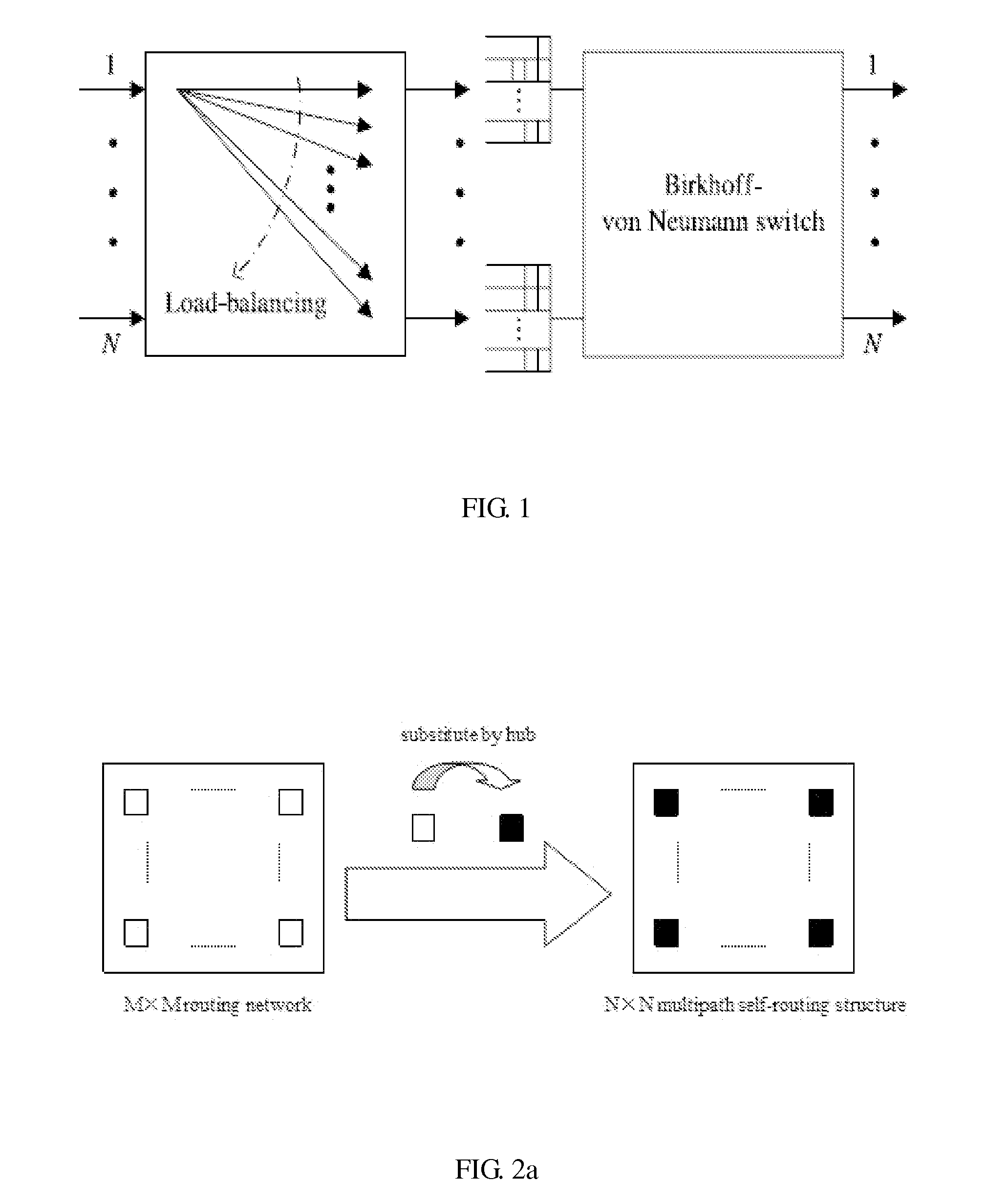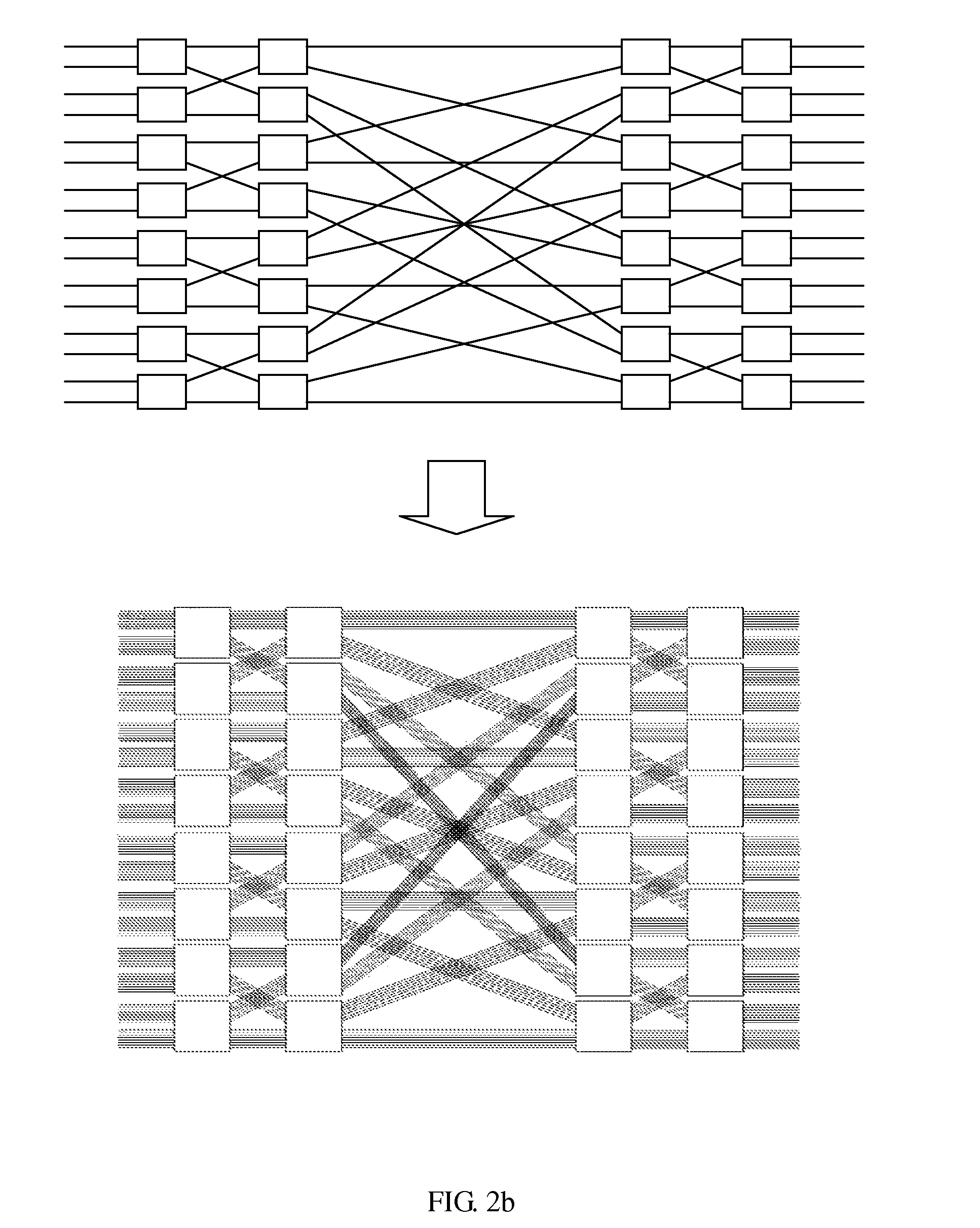Load-balancing structure for packet switches and its constructing method
a load-balancing and packet switch technology, applied in the field of communication technology, can solve problems such as packet out-of-sequence packet delay and packet out-of-sequence, different traffic and un-uniformity, and achieve the effect of improving end-to-end throughpu
- Summary
- Abstract
- Description
- Claims
- Application Information
AI Technical Summary
Benefits of technology
Problems solved by technology
Method used
Image
Examples
Embodiment Construction
[0023]Embodiments of the invention are best understood by referring to FIGS. 1 through 5 of the drawings.
[0024]The invention which is based on self-routing concentrators provides a packet switching structure, and the structure which mainly uses concentrators and line group technology can be constructed based on the routable multi-stage interconnect network (MIN).
[0025]As illustrated in FIG. 2a, before constructing the self-routing concentrators based packet switching structure by an M×M routable MIN, usually, let N=2n, N=M×G, M=2m, G=2g. First, construct an M×M routable network (Divide-and-conquer networks are often chosen for their modularity, scalability and optimal layout complexity). Then, substitute each 2×2 routing cell with 2G-to-G self-routing group concentrators. Finally, substitute each line with G parallel lines. An N×N network with M output (input) groups and each group with G output (input) ports is built up. A 2G-to-G concentrator has two input and output groups, and t...
PUM
 Login to View More
Login to View More Abstract
Description
Claims
Application Information
 Login to View More
Login to View More - R&D
- Intellectual Property
- Life Sciences
- Materials
- Tech Scout
- Unparalleled Data Quality
- Higher Quality Content
- 60% Fewer Hallucinations
Browse by: Latest US Patents, China's latest patents, Technical Efficacy Thesaurus, Application Domain, Technology Topic, Popular Technical Reports.
© 2025 PatSnap. All rights reserved.Legal|Privacy policy|Modern Slavery Act Transparency Statement|Sitemap|About US| Contact US: help@patsnap.com



